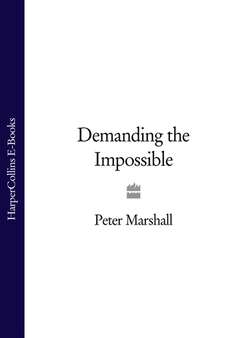Читать книгу Demanding the Impossible - Peter Marshall - Страница 56
14 American Libertarians
ОглавлениеTHERE IS A LONG TRADITION in North America of hostility to the State and defence of personal autonomy; the United States is after all the oldest liberal democracy in the world. The Protestant right of private judgement or conscience became a central part of American political culture, and formed the basis of the defence of freedom of thought and speech. It also accounts for the deeply ingrained sense of individualism in American society.
After the American War of Independence, the founding fathers of the new republic felt compelled to introduce government to protect private property and individual rights to life, liberty and the pursuit of happiness. But they were keen to keep government interference to a minimum and adopted the principle of federation to spread political authority throughout the regions. Immediately after the Revolution, the Articles of Confederation established minimal government, libertarian and decentralized, although its powers were inexorably strengthened in the following decades.
The self-reliant settlers were well aware without reading Tom Paine’s Common Sense (1776) that ‘Society in every state is a blessing, but government even in its best state is but a necessary evil; in its worst state an intolerable one’. They shared for the most part the maxim attributed to Thomas Jefferson: ‘That government is best which governs least.’ The principle has become a rallying-cry for libertarians ever since, although anarchists have added that the best government is that which governs not at all.
In the nineteenth century, American anarchism developed mainly in an individualist direction in the hands of Josiah Warren, Stephen Pearl Andrews, Lysander Spooner and Benjamin Tucker. While they came close to anarchism, the writers Emerson, Whitman and Thoreau expressed most keenly the libertarian ideal. Their independent stance directly inspired later anarchists and their combination of ‘Transcendental Individualism’ with a search for a creative life close to nature finds echoes in the counter-culture and Green movements of the late-twentieth century.
